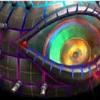I'm not an atheist. I don't think I can call myself a pantheist. The problem involved is too vast for our limited minds. We are in the position of a little child entering a huge library filled with books in many languages. The child knows someone must have written those books. It does not know how. It does not understand the languages in which they are written. The child dimly suspects a mysterious order in the arrangement of the books but doesn't know what it is. That, it seems to me, is the attitude of even the most intelligent human being toward God. We see the universe marvelously arranged and obeying certain laws but only dimly understand these laws. Our limited minds grasp the mysterious force that moves the constellations. I am fascinated by Spinoza's pantheism, but admire even more his contribution to modern thought because he is the first philosopher to deal with the soul and body as one, and not two separate things
I'm an agnostic.
I understand where the general perspective would be centered in such a forum as this. I understand it to a point.
However, from an objective perspective, the atheists here do realize that their arguments are so riddled with rhetorical fallacies that they are utterly unreadable to someone with a scientific mind, right?
If you want to argue against something that you beleive to be fallicious, then your arguments against must not contain fallacies, especially the quantity that they contain, and must be written within the strictest parameters of rhetorical integrity. Especially if you are trying to convince the world of your perspective, which by definition of your perspective, will approach your arguments with a very strict sense of analytical and rhetorical integrity. The irony is almost too much to bear, given the nature of this forum.
Second, for how smart that the people on this forum claim to be, they seem to not realize the limited nature of their own minds. You are taking in and processing such a minute amount of information about your environment and the universe that spawned it, over the course of your lifetime, that to be so pretentious that you state that you can understand said environment, and the nature of the origin of your existance, to the point that you can discount a 'god' force is so utterly ridiculous that you are akin to phoenician's looking up at the moon and pronouncing it god. In this case, you might be looking at the god and pronouncing it 'the big bang'. The point being, that you do not have the necessary information, nor will you likely ever have the necessary information, to arrive at an informed conclusion either way. To conclude differently is, ironically, unscientific.
Your minds are coffee filters in the Pacific Ocean of infinitely diverse information that comprises our universe. You have zero abiity to make a definate scientific conclusion that God doesn't exist. Conversely, people of faith are in the same position.
So, follow the parameters of your scientific method and admit the only thing that you can purport to know for sure, due to lack of evidence, and the thing that any man of wisdom comes to realize. That is: "All that I know is that I don't know".
Btw, pointing to religious myths as being untrue, such as the age of the earth, is a rhetorical fallacy as it avoids the central topic of the conversation and instead attacks a straw-man. The central topic is only whether or not god exists.
I find atheists just as close mided and frustrating to argue with as theists, primarily becasue it is very difficult to make the atheist see the truth of his 'lack of' belief: that he didn't give up belief at all. He just traded his belief that there is a god for a belief that there isn't a god. Atheists are still true believers. However, both perspectives are utterly unprovable, and therefore irrational, given our current knowledge. Only agnostics lack belief.

















































